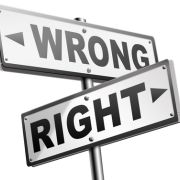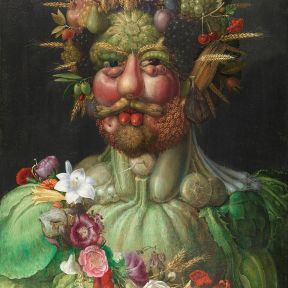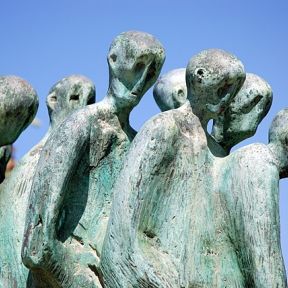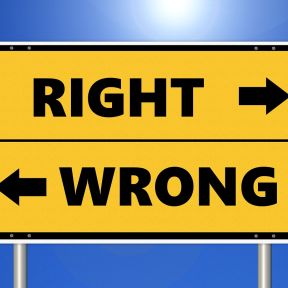
Ethics and Morality
To put it simply, ethics represents the moral code that guides a person’s choices and behaviors throughout their life. The idea of a moral code extends beyond the individual to include what is determined to be right, and wrong, for a community or society at large.
Ethics is concerned with rights, responsibilities, use of language, what it means to live an ethical life, and how people make moral decisions. We may think of moralizing as an intellectual exercise, but more frequently it's an attempt to make sense of our gut instincts and reactions. It's a subjective concept, and many people have strong and stubborn beliefs about what's right and wrong that can place them in direct contrast to the moral beliefs of others. Yet even though morals may vary from person to person, religion to religion, and culture to culture, many have been found to be universal, stemming from basic human emotions.

Those who are considered morally good are said to be virtuous, holding themselves to high ethical standards, while those viewed as morally bad are thought of as wicked, sinful, or even criminal. Morality was a key concern of Aristotle, who first studied questions such as “What is moral responsibility?” and “What does it take for a human being to be virtuous?”
We used to think that people are born with a blank slate, but research has shown that people have an innate sense of morality. Of course, parents and the greater society can certainly nurture and develop morality and ethics in children.
Humans are ethical and moral regardless of religion and God. People are not fundamentally good nor are they fundamentally evil. However, a Pew study found that atheists are much less likely than theists to believe that there are "absolute standards of right and wrong." In effect, atheism does not undermine morality, but the atheist’s conception of morality may depart from that of the traditional theist.
Animals are like humans—and humans are animals, after all. Many studies have been conducted across animal species, and more than 90 percent of their behavior is what can be identified as “prosocial” or positive. Plus, you won’t find mass warfare in animals as you do in humans. Hence, in a way, you can say that animals are more moral than humans.
The examination of moral psychology involves the study of moral philosophy but the field is more concerned with how a person comes to make a right or wrong decision, rather than what sort of decisions he or she should have made. Character, reasoning, responsibility, and altruism, among other areas, also come into play, as does the development of morality.

The seven deadly sins were first enumerated in the sixth century by Pope Gregory I, and represent the sweep of immoral behavior. Also known as the cardinal sins or seven deadly vices, they are vanity, jealousy, anger, laziness, greed, gluttony, and lust. People who demonstrate these immoral behaviors are often said to be flawed in character. Some modern thinkers suggest that virtue often disguises a hidden vice; it just depends on where we tip the scale.
An amoral person has no sense of, or care for, what is right or wrong. There is no regard for either morality or immorality. Conversely, an immoral person knows the difference, yet he does the wrong thing, regardless. The amoral politician, for example, has no conscience and makes choices based on his own personal needs; he is oblivious to whether his actions are right or wrong.
One could argue that the actions of Wells Fargo, for example, were amoral if the bank had no sense of right or wrong. In the 2016 fraud scandal, the bank created fraudulent savings and checking accounts for millions of clients, unbeknownst to them. Of course, if the bank knew what it was doing all along, then the scandal would be labeled immoral.
Everyone tells white lies to a degree, and often the lie is done for the greater good. But the idea that a small percentage of people tell the lion’s share of lies is the Pareto principle, the law of the vital few. It is 20 percent of the population that accounts for 80 percent of a behavior.
We do know what is right from wrong. If you harm and injure another person, that is wrong. However, what is right for one person, may well be wrong for another. A good example of this dichotomy is the religious conservative who thinks that a woman’s right to her body is morally wrong. In this case, one’s ethics are based on one’s values; and the moral divide between values can be vast.

Psychologist Lawrence Kohlberg established his stages of moral development in 1958. This framework has led to current research into moral psychology. Kohlberg's work addresses the process of how we think of right and wrong and is based on Jean Piaget's theory of moral judgment for children. His stages include pre-conventional, conventional, post-conventional, and what we learn in one stage is integrated into the subsequent stages.
The pre-conventional stage is driven by obedience and punishment. This is a child's view of what is right or wrong. Examples of this thinking: “I hit my brother and I received a time-out.” “How can I avoid punishment?” “What's in it for me?”
The conventional stage is when we accept societal views on rights and wrongs. In this stage people follow rules with a good boy and nice girl orientation. An example of this thinking: “Do it for me.” This stage also includes law-and-order morality: “Do your duty.”
The post-conventional stage is more abstract: “Your right and wrong is not my right and wrong.” This stage goes beyond social norms and an individual develops his own moral compass, sticking to personal principles of what is ethical or not.














